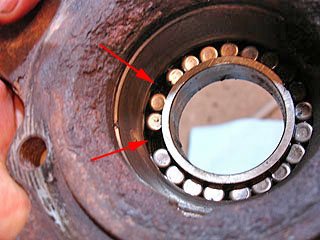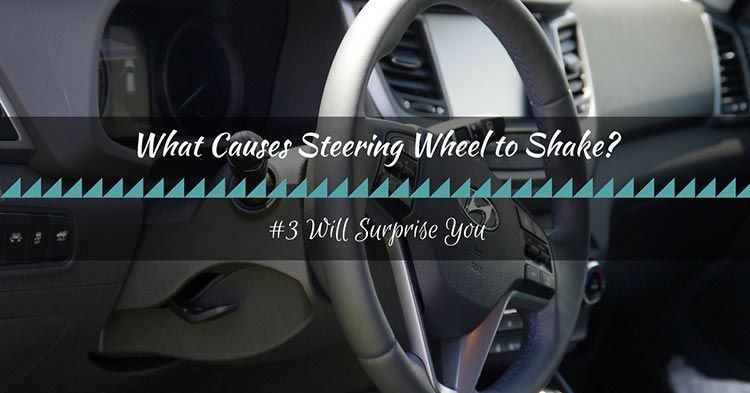
What Causes Steering Wheel to Shake – #3 Will Surprise You
The million-dollar question that many people suffering from a shaky steering wheel ask themselves is, what causes steering wheel to shake? Are you one of the people that has experienced a shaky steering wheel while driving?
More...
In addition to learning the major causes of a shaky steering wheel, you should also learn about the best solutions to this and many others such as how to fix a power steering leak.
Having being frustrated by my shaky steering wheel a couple of times, I thought it would be prudent to share some of the causes I learnt about and how to solve each one of them.
As much as it might be a simple annoyance to some people, shaking steering wheels indicate an array of serious issues that you must address promptly. The most common culprit of your shaky steering wheel is your car’s tire. While that might be the case, other issues can be solely responsible for the problem.
The following are the major causes of a shaky steering wheel:
#1: Unbalanced Wheels
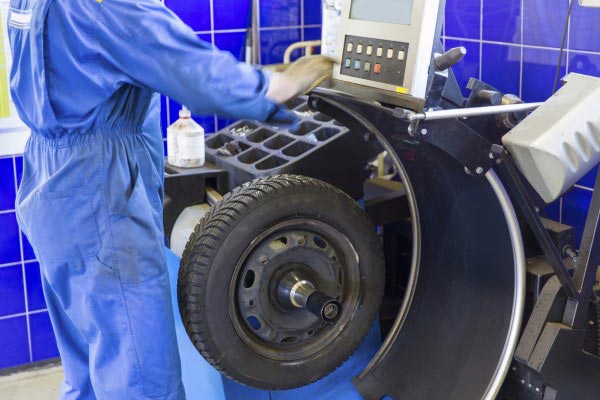
Even slightly unbalanced wheels cause excess shaking of the steering wheel and potential of the entire car. If ignored, the unbalanced wheels can result to further issues with struts, shocks, tread, suspension and steering components.
If you’ve never seen your tires replaced or replaced them yourself, chances are high that you don’t even know they need balancing. There’s more to balancing them than ensuring they’re of the same size and general quality.
Anytime a new tire is placed on the rim, you must balance it to make sure the weight is distributed evenly around the entire wheel. Additionally, the mechanic needs to match the rim’s heavy areas to the lighter ones.
Once that’s done, you can then add counter weights in order to balance the wheels further.
Check out this video to learn some tips about proper wheel balancing.
#2: Misalignment
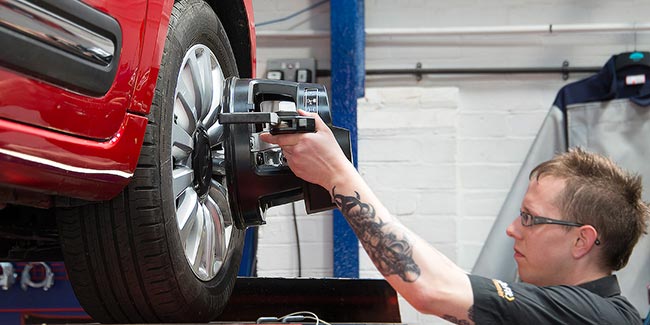
Via kwik-fit.com
Misalignment deals with the suspension of your car as well as improper positioning of the wheels. Generally, it’s common after driving your car for some time. However, it can happen sooner based on how you drive your vehicle.
To avoid misalignment issues, you must avoid driving over curbs and potholes. Always go over railroad and speed bumps slowly in order to maintain the alignment of your car for longer. An effective way of checking whether misalignment is the cause of shaking of your steering wheel is by checking whether tires have treads.
Misaligned cars have tires with uneven tread. For instance, your car might be completely worn down or the outside part having full treads.
#3: Bad/Poor Bearings
Wheel hub bearings are important to the optimum working condition of your vehicle. If you don’t lubricate them or they happen to be damaged or broken, your car will suffer from a shaky steering wheel.
Excellent bearings enable the wheels to turn correctly without friction. They also offer support to your car’s weight.
Bearings connect to the hub or axle assembly, so that whenever they do not work properly, they end up affecting the drive shaft directly thus leading to shaking of your steering wheel.
A mechanic can remove and check bearings for damage. At times, just a simple cleaning and/or lubrication can go miles in fixing the bad bearings issue. If your car’s bearings are broken or badly worn, you should replace them.
Want to learn more about how to diagnose bad wheel bearing? Find more information about that and how to replace your wheel bearing hub assembly here.
#4: Suspension Issues
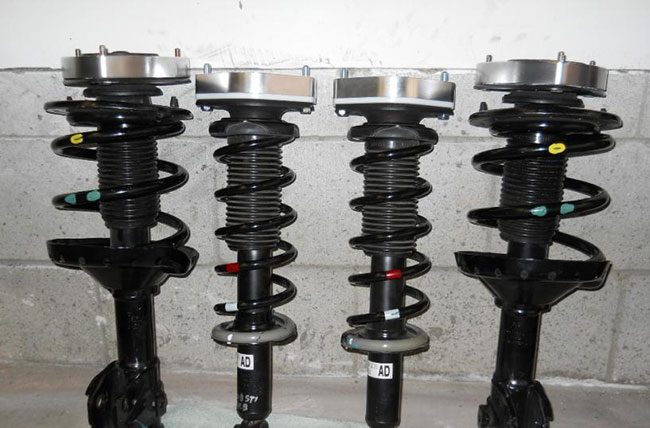
The suspension system of a car features a sophisticated structure of rods, springs, pistons and shocks that link the wheels to other parts of the car. The suspension system usually contributes to how the vehicle operates and brakes.
This is in addition to reducing vibration, noises, and bumps within the cab. Over time, an array of suspension issues arises over time. While such issues might be challenging to pinpoint, they’re generally effortless to fix once they’re discovered.
The following are the most common issues related to suspension that can cause your steering wheel to shake:
- Old Shocks
- Driveshaft Imbalance
- Loose Connections
- Corroded or Worn Parts
Are you of the opinion that your steering wheel is shaking because of a suspension issue? If yes, then you must pay attention to the exact time the shaking occurs.
It tends to increase whenever you speed up whenever you maintain a certain speed or completely random times. By knowing exactly when the shaking takes place, you’ll be able to establish the root cause of the problem.
Depending on extra symptoms, such as grinding or rattling, you ought to be able to find the source the suspension problem. Eventually, you’ll repair it real time to make sure that your car is running optimally and as safely as possible.
#5: Brake Problems
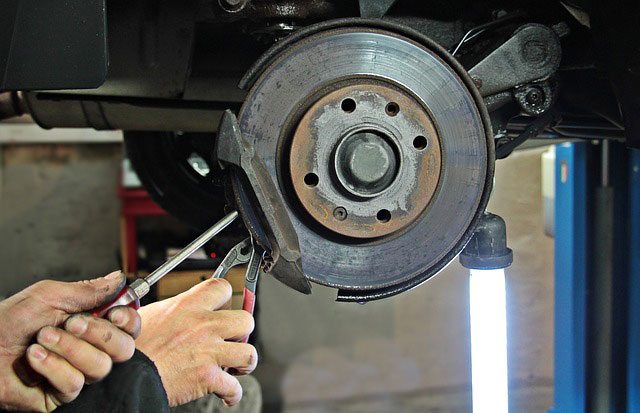
Does your steering wheel shake when you’re slowing down? If yes, then chances are very high that the issue has to do with the brakes. Bad brake discs, worn shocks, loose connections, and worn brake pads can all cause your steering wheel to shake. Most of these problems are normally accompanied by other issues too.
Most of the shaking normally takes place when you’re accelerating, maintaining a certain speed or turning. Brake issues are distinct in the way they make their problems known especially when applying pressure to the brakes.
The good thing is that most of the time, brake related problems are easier to establish compared to others. After determining that the brakes are to blame for your shaky steering wheel, you need to inspect the different elements of the brake system in order to pinpoint to root cause of the shaking.
It might be necessary to tighten some loose parts, clean a part or replace a part.
Conclusion!
Regardless of the root cause of your steering wheel shaking, it’s always in your best interests to troubleshoot the issue and repair it real time.
Shakes to your steering wheel might be small or simple such as uneven tire tread or loose bolt, but at times, they can be an indication of a bigger problem, which might lead to the breakdown of your car if you ignore them.
It’s highly important to investigate the different components of every system of your car. Additionally, you must do your best to eliminate the issue as soon as you notice it.
By doing that, you’ll certainly be able to avoid future or more serious issues.
There is no doubt about that.
Related Posts
Are Dodge Chargers Expensive to Fix?
Fleet Fuel Cards for Optimal Car or Truck Expense Tracking
Top Simple Ways to Improve the Look of Your Car
A look under the hood of Waymo robotaxis
What are toll roads, and how to pay the tolls?


